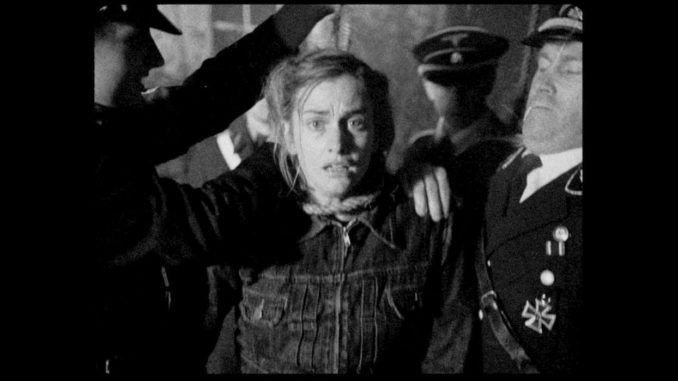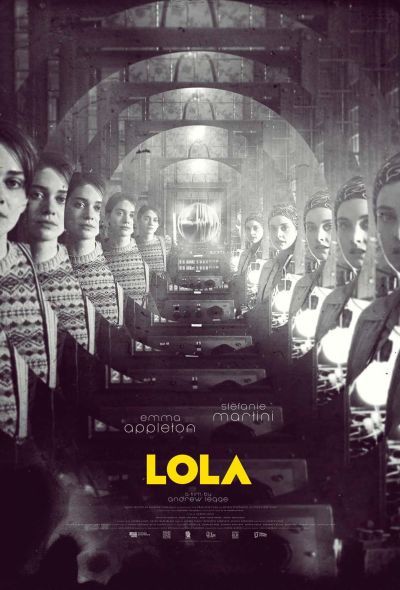
Rating: B
Dir: Andrew Legge
Star: Emma Appleton, Stefanie Martini, Rory Fleck Byrne, Aaron Monaghan
Though you’d not be wrong to call this a time-travel movie, it’s not a conventional one, and may be all the better as a result. Nobody is in anything but the present. However, information travels in time. It’s the result of a machine invented by the Hanbury sisters, Thomasina (Appleton) and Martha (Martini), named LOLA after their late mother. It allows them to tap into radio and television broadcasts from future times. Initially, this is all fun and games, opening a portal into new music and cinema. David Bowie, in particular, is a source of awe, because when this kicks off, it’s the year 1938. Obviously, this means immediate future transmissions include more disturbing things than Ziggy Stardust.
Initially, Thom and Mars use the information they gain from news reports to warn civilians of Luftwaffe raids. But, inevitably, the military become interested, and the sisters are found by Lt. Sebastian Holloway (Byrne). They then use LOLA to provide actionable intelligence with the aim of bringing the war to a quicker close. Except, as usual, the law of unintended consequences kicks in. Suddenly, Bowie vanishes from the future broadcasts, replaced by rather concerning songs about marching. That’s just the start of things going swastika-shaped. Despite – indeed, in part due to – the Hanbury’s efforts, Britain becomes a Nazi puppet regime, and the sisters are separated. Mars and Sebastian join the resistance, but Thom continues to work on LOLA, under the supervision of Prime Minister Mosley’s government.
 This all unfolds in a mixture of footage shot by Mars, who rigorously documents everything, and newsreel footage which depicts things unfolding in the world at large. The latter is genuinely impressive, along the lines of Forrest Gump. If you ever wanted to see Adolf Hitler, parading in triumph past Piccadilly Circus… Well, I have questions, if that’s a life goal. But the film has you covered. It’s startling stuff, considering the small budget, and convincing in a deep fake way. Probably more so than the Hanburys. Even allowing for the seditious influence of the Thin White Duke, they feel more like time travellers, visiting from the future and doing a poor job of fitting in, rather than genuine forties gals.
This all unfolds in a mixture of footage shot by Mars, who rigorously documents everything, and newsreel footage which depicts things unfolding in the world at large. The latter is genuinely impressive, along the lines of Forrest Gump. If you ever wanted to see Adolf Hitler, parading in triumph past Piccadilly Circus… Well, I have questions, if that’s a life goal. But the film has you covered. It’s startling stuff, considering the small budget, and convincing in a deep fake way. Probably more so than the Hanburys. Even allowing for the seditious influence of the Thin White Duke, they feel more like time travellers, visiting from the future and doing a poor job of fitting in, rather than genuine forties gals.
On the other hand, given the era, the sisters are unquestionably decades ahead of their time. They are clearly razor-sharp, independent and inclined not to give a damn what anyone else thinks – see their performance of a Kinks song at a war-time soirée. The sisters are also devoted to each other, regardless of how bleak the circumstances, and things here get pretty damn bleak (top). In smartness, this feels like it could have been a Dr. Who episode – back before the show vanished up its own Chibnall – along the lines of Blink. That’s high praise, and speaks to the quality of the writing here. For a first feature, it’s one of the most impressive I’ve seen, and Legge is a name I’ll definitely be watching.
